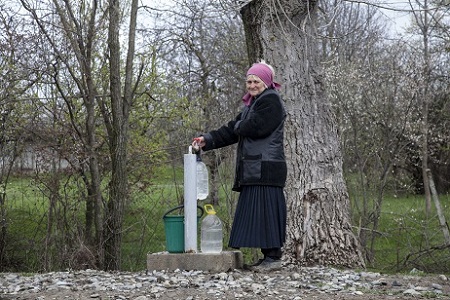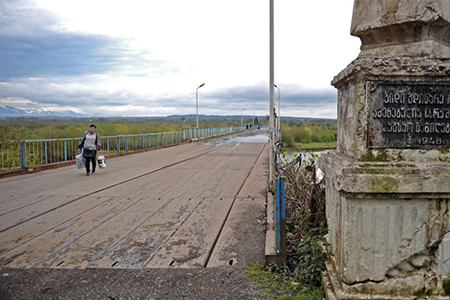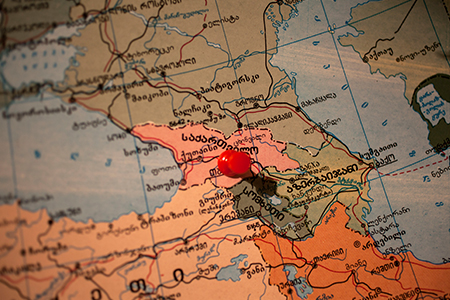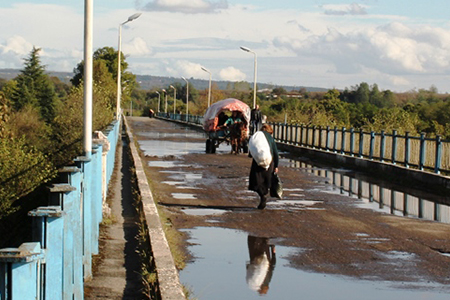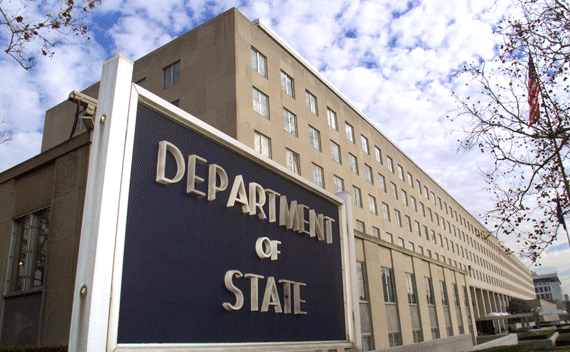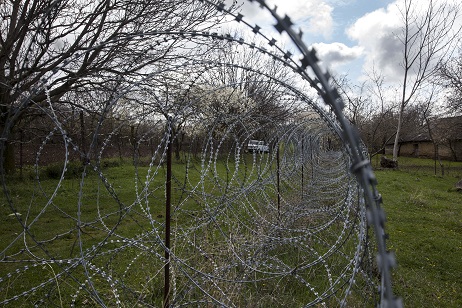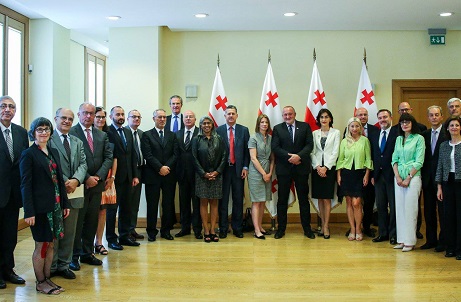OSCE adresses illegal steps in occupied Tskhinvali and Abkhazia

The OSCE Permanent Council discussed so-called parliamentary elections in the occupied region of Abkhazia and the decision of the de-facto government of Tskhinvali (South Ossetia) to hold a referendum on changing the name of the region and joining the Russian Armed Forces.
At yesterday’s session members of the Organization for Security and Co-operation in Europe (OSCE) permanent council called on Russia to follow the August 12, 2008 Ceasefire Agreement and allow for the entrance of European Union (EU) observation missions to Georgia’s breakaway regions.
The six-point ceasefire agreement that both Georgia and Russia signed after the five-day August 2008 war demands the withdrawal of Russian military forces from Georgian territory to create conditions for the peaceful resolution of the conflict.
As of today, only four countries recognise Georgia’s breakaway regions as independent republics; these are Russia, Nicaragua, Venezuela and Nauru.
Illegal parliamentary elections in Abkhazia
Deputy Head of the Georgian delegation to OSCE Maka Bochorishvili said so-called parliamentary elections in Abkhazia are yet another attempt at legitimising the consequences of several waves of ethnic cleansing, military invasion, occupation and lasting aggression by Russia against Georgian statehood.
NATO, the United States, the European Union, Poland, Estonia, Azerbaijan, Romania and Finland have also denounced the illegal parliamentary elections in breakaway Abkhazia that were held on March 12.
Tskhinvali’s military deal with Russia
Meanwhile on March 14 Russian President Vladimir Putin approved of an agreement between Russia and de-facto authorities in Tskhinvali, allowing South Ossetian troops to serve in the Russian Armed Forces.
Last year Russia’s parliament ratified an illegal military cooperation agreement with Abkhazia as well.
From Tskhinvali to South Ossetia/Alania?
Last year de-facto leader of Tskhinvali region Leonid Tibilov said the breakaway region will hold a plebiscite to rename Tskhinvali region’s name to ‘the Republic of South Ossetia – the State of Alania”. The second part of the name would sound just like North Ossetia-Alania, which is a federal subject of Russia.
Composed of delegates of the participating States, "the Permanent Council is the principal decision-making body for regular political consultations and for governing the day-to-day operational work of the OSCE between the meetings of the Ministerial Council”.
Head of Georgian Security Council Davit Rakviashvili said he believes the situation in Georgia’s breakaway regions is connected with Russia’s attempt to militarise the region and "weakening the security of the Black Sea architecture”.
Rakviashvili believes this is a complex issue; however, together with its international partners Georgia is now discussing ways for decreasing possible threats to the region.
 Tweet
Tweet  Share
Share

